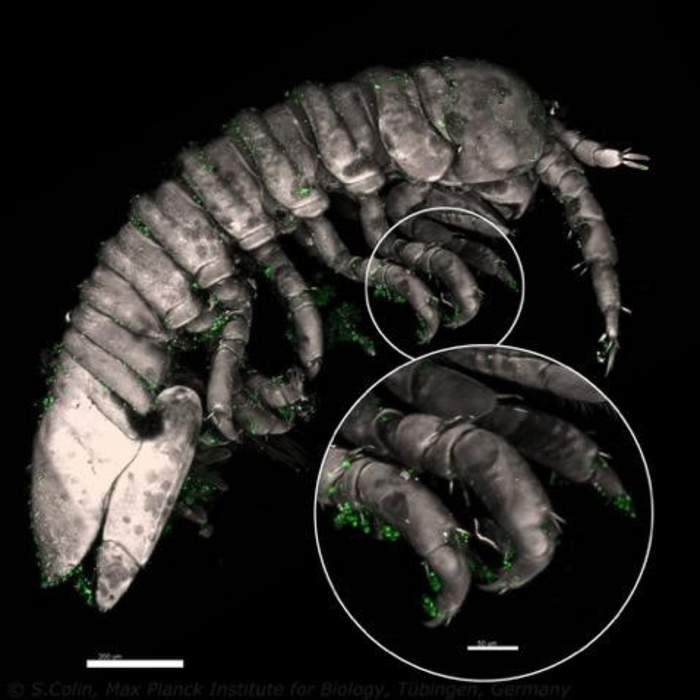Are sea animals involved in the reproductive cycle of algae, like pollinating insects on dry land? Dispersal of the male gametes, or spermatia, of red algae generally relies on water movement, and up until now, scientists did not recognize the role played by animals.

Credit: © Sébastien Colin
Are sea animals involved in the reproductive cycle of algae, like pollinating insects on dry land? Dispersal of the male gametes, or spermatia, of red algae generally relies on water movement, and up until now, scientists did not recognize the role played by animals.
Yet an international team led by Myriam Valero, a CNRS scientist affiliated with the Evolutionary Biology and Ecology of Algae research unit (CNRS / Pontificia Universidad Católica de Chile / Sorbonne University / Universidad Austral de Chile) and Roscoff Marine Station (CNRS / Sorbonne University)1, has revealed that tiny marine creatures called idoteas act as ‘sea bees’ for the red alga Gracilaria gracilis.
Idoteas contribute to the fertilization of G. gracilis as they swim amid these algae. The surfaces of the male algae are dotted with reproductive structures that produce spermatia coated with mucilage, a sticky substance. As an idotea passes by, the spermatia adhere to its cuticle and are then deposited on the thalli of any female alga the crustacean comes into contact, thus helping G. gracilis reproduction.
But idoteas also stand to benefit in this arrangement. The seaweed gives them room and board: idotea cling to the algae as a protection from strong currents, and they munch on small organisms growing on their thalli. This is an example of a mutualistic interaction—a win-win situation for plant and animal alike—and the first time that an interaction of this kind between a seaweed and an animal has been observed.
While these initial findings do not indicate the extent to which animal transport of gametes contributes to algal fertilization relative to the role of water movement—previously thought to be the sole means of gamete dispersal—they do offer surprising insight into the origin of animal-mediated fertilization of plants. Before this discovery, the latter was assumed to have emerged among terrestrial plants 140 million years ago. Red algae arose over 800 million years ago and their fertilization via animal intermediaries may long predate the origin of pollination on land. Valero’s team now aim to focus on several other questions: Do idoteas trigger the release of spermatia? Are they able to distinguish male G. gracilis algae from female individuals? And most importantly, do similar interactions exist between other marine species?
Note
1 The other participating scientists hail from the Instituto de Ciencias Ambientales y Evolutivas (Facultad de Ciencias, Universidad Austral de Chile), the Laboratory of Integrative Biology of Marine Models (CNRS / Sorbonne University), and the Max Planck Institute for Biology in Tübingen (BioOptics facility).
Journal
Science
DOI
10.1126/science.abo6661
Method of Research
Experimental study
Subject of Research
Animals
Article Title
Pollinators of the sea: a discovery of animal mediated fertilization in seaweed
Article Publication Date
29-Jul-2022




